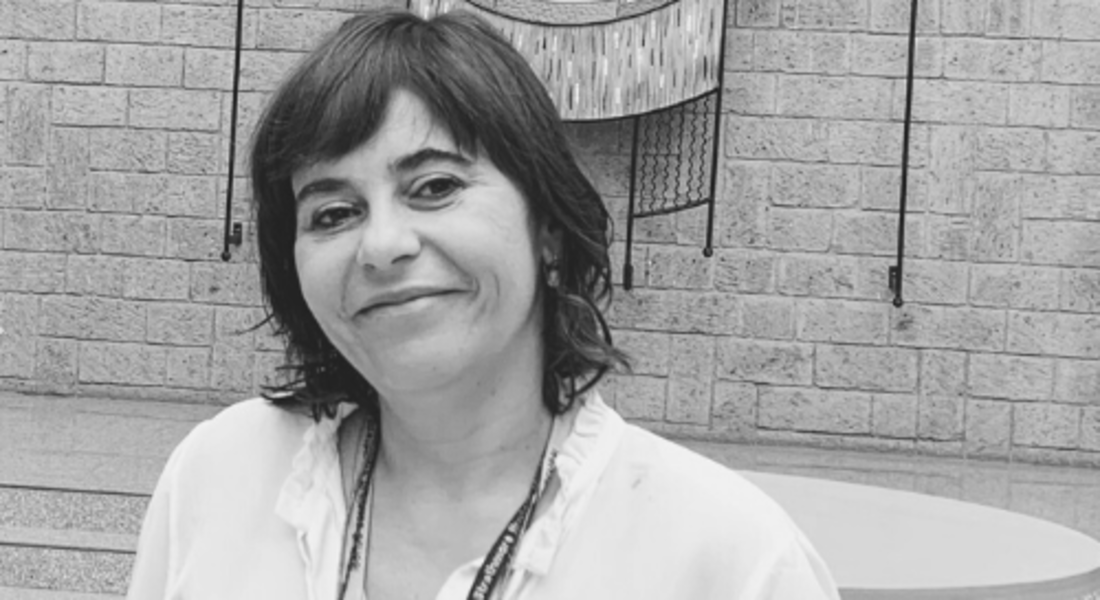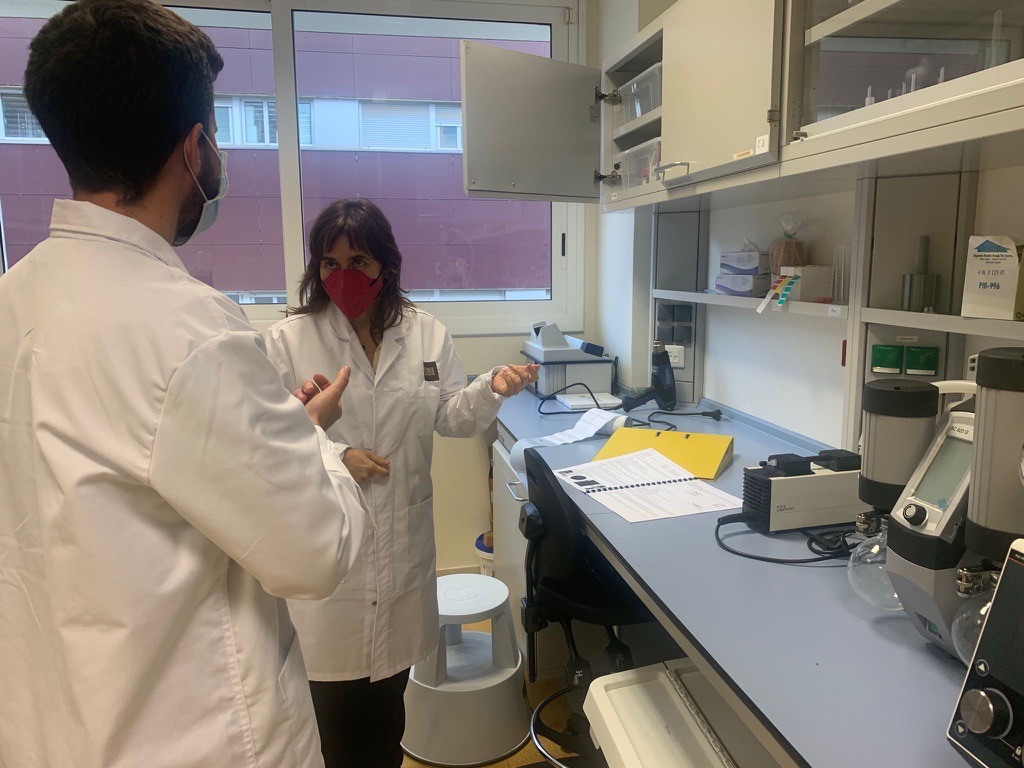
"We have managed to develop solar filters that are environmentally-friendly and offer better skin protection"
(This article was originally published by Agencia Sinc in Spanish and has been translated by Roka Furadada)
The Accelerator Program of the European Innovation Council (EIC) provides support for the promotion of disruptive and promising technologies that meet the objectives of the European Commission in areas such as health, the environment, and social sciences, among others.
In the first round of this programme, the EIC selected 65 innovative start-ups and SMEs to receive €363 million in funding to develop cutting-edge technologies. Among these companies was the Spanish firm Roka Furadada.
Based in the Science Park of the Autonomous University of Barcelona, this firm was created by Judit Camargo (Barcelona, 1977) three years ago and holds three patents for a new generation of solar filters that "adapt to the level of ultraviolet radiation and are environmentally-friendly”, explains this chemist specializing in biomedical research applied to public health in a telephone conversation with SINC.
Only three Spanish companies, including Roka Furadada, were selected to be promoted by the European Innovation Council Accelerator. What does this aid consist of?
They interviewed 13 Spanish companies and three got through. We have obtained a subsidy of 1.7 million euros. And, if everything goes as well as it has up to now, the European Commission bank will also finance us with a share of equity [social capital] of up to €1.5 million.
What does your company do?
It's a start-up SME that I started in March 2019, but the Adaptive Progressive UV Filters project had already been in development for quite a long time. Much of my career has been in the pharmaceutical and chemical sector. I spent 15 years at the Ferrer pharmaceutical company —one of the most important in Spain— and it was there, at the company's research center, where this project was born. In 2019, I decided to go it alone and we reached an agreement to transfer the technology to Roka Furadada.
How are the solar filters you have developed different from those on the market?
Solar filters are used as active ingredients in sunscreens. What sets ours apart is that they are dose-dependent. This means that, depending on the amount of UV radiation they receive, they are activated to a greater or lesser extent. In addition, they are up to six times more efficient, last longer, and degrade less than current filters. Therefore, it is a different technology than what exists today. Those used today are filters that absorb radiation and degrade over time.
And this degradation of current filters translates into toxicity, right?
Yes. The use of many of the filters that are currently authorized in Europe and in countries such as the US is being limited by regulators due to problems of environmental impact and on people's health, especially those that are identified on the list of possible endocrine disruptors, both for people and for aquatic ecosystems.
Our filters don’t present those problems. They are organic molecules, but which we later encapsulate. Encapsulations are normally made so that the molecules that are inside — aromas, other filters, or drugs — are released slowly to avoid allergenicity and other problems. But the capsules are porous to the product inside.
The advantage of ours is that they carry a group that anchors them to the structure of the capsule, so that they are not released into the environment. When they are produced as a cream, interactions with other elements of the formula are avoided and, therefore, toxicity in humans is also eliminated.
Does this mean that they do not pollute the environment and that, at the same time, they offer better skin protection against UV radiation?
I don't like to say that our filters have zero impact on the environment, but I can say that it is much less than with current solar filters. And, as far as your skin is concerned, the improvement is that the final product will be a sunscreen that protects us better from UV radiation: up to six times more, as I said before, especially in situations of high exposure in sports such as skiing, sailing, cycling, mountaineering, beach, etc. This is important for curbing skin cancer.
Are these filters patented?
We already have three patents granted worldwide and we are generating new ones now.
From what you say, the product is already very advanced. In what phase of development will the boost from the EIC Accelerator place you?
The help that the Accelerator gives us is for the application of our technology in sunscreens, which in Europe are classified as cosmetics and in Japan, for example, almost as medicines. The grant will allow us to go from the TRL6 phase to the TLR7 [a way of classifying the technology; TLR9 would be the commercialization phase]. That is, it will help us to finish the stage of development, industrialization, and technology improvement and to do a pilot program with clients, etc.
We are at a fairly advanced phase, but we are missing a regulatory element and an industrial scaling component. So the European funding will fill the gap that’s missing before hitting the market.

Judit Camargo in the laboratory with a researcher from her team. / Photo courtesy of the interviewee
What is testing with clients like?
We do this in collaboration with our clients and they are simply formulation tests. These cosmetics firms handle the finished product, whereas we produce the ingredient. The pilot program consists of these companies, which are national and international [we can’t disclose their names] and already market sun creams with their own active ingredients, introducing our filters into their formulations.
What other requirements are necessary before commercialization?
With the grant, the objective is to carry out all these pilot programs, conduct scaling tests, and improve the entire sustainability component, which is a very important element of the project. For this, we are studying the use of biomass from paper waste as raw material in the production of our molecules, instead of petroleum derivatives. They have given us the subsidy to do all this and, if we succeed, part of the social capital or equity loan from the EC bank would go to commercialization.
Can you explain how biomass is introduced as a raw material in solar filters?
Perhaps the general public does not know it, but in chemical and biological processes to produce organic molecules, petroleum derivatives are normally used as a raw material. We also use them in our filters, like everyone else.
One part of the study involves using raw material from biomass waste from the paper industry, instead of these derivatives. We are going to focus on lignin, which is like the 'new oil' in this area. It is a product that is normally burned, because even though it is very valuable, it is not easy to work with. But it has great potential. And it is a material that can come in handy to improve the sustainability of our application.
When do you think your filters will reach the consumer?
There are two questions here: when are we going to sell our filters to sunblock manufacturers? and when will they be available to consumers? Developing a cosmetic formula usually takes between six and twelve months before it hits the shelves, so we hope that our filters may already be in creams marketed at the end of this year or the beginning of next.
How many people does your company employ?
Right now there are 15 of us, 12 full-time and three part-time, nine women and six men. We have six PhDs on staff and we come from the fields of chemistry, biotechnology, and pharmacy. We have our own laboratory for organic synthesis and another for cosmetic applications.
In what other sectors are solar filters used, in addition to sunblock?
They are used in many other applications, such as preservatives for pigments in the textile, plastic, automotive, aeronautical, and wood sectors. In our case, we are studying the application of our filters in the automotive industry and we have been testing with manufacturers for a year now. Filters are added as an ingredient in transparent varnishes that cover and protect car paint, both from radiation and from external aggressions, oxidation, etc. And filters are also added to the plastics of certain car components.
You are doing very well for a start-up, right?
Yes, we are very happy. Also, I want to say that, apart from the European subsidy for the application of our filters in cosmetics, from the beginning we have received national aid. The Ministry of Industry provided us with a loan of 100,000 euros through ENISA; and we got €450,000 from the CDTI, with a Cervera R&D that has very advantageous conditions. The Generalitat [Catalan government] also gave us a €75k grant through its StartupCapital program. And we have also received €1.5 million from private investors.
I think it is important to emphasize this because we have had this aid from the beginning and thanks to it we have also been able to keep moving forward.
Why the name Roka Furadada?
I chose it [laughs]. In Spanish it translates as “holed rock”. Since I was a child, I have spent my summers in Torredembarra [Costa Dorada, Tarragona] and there was one of these very large rocks with holes —which can be seen all along the Mediterranean coast. You could enter the sea through the holes and I really liked going in with my dad and going through it for a swim. The rock is gone now because it was knocked down to build a commercial port.
It seems to me that the name is very fitting because the first molecules that we are going to launch are solar filters that protect us more and better from the sun and have less impact on the conservation of the sea, beaches, and our environment.
Source: SINC
Rights: Creative Commons
